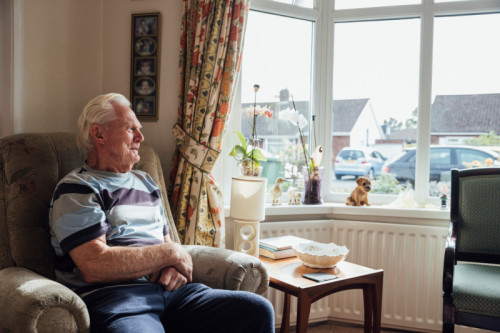
A recent study from The University of Manchester calls for urban areas to strengthen their support systems for older residents who wish to remain in their homes and communities as they age. Released ahead of the International Day for Older Persons, the research highlights the concept of “ageing in place,” which emphasizes the importance of enabling older adults to live comfortably in their chosen environments for as long as possible.
The findings, published in the European Journal of Ageing, reveal troubling gaps in the existing support structures across many cities. Despite the general acceptance of ageing in place as a beneficial approach, the study indicates that numerous urban centres fail to provide essential services and infrastructure. The research team points to several pressing issues, including rising inequality, cuts to public services, and the increasing privatisation of urban spaces. These factors significantly hinder older individuals’ access to necessary support systems.
Particularly in poorer neighbourhoods, vital facilities such as libraries, community centres, and affordable housing are in decline. These resources play a crucial role in promoting well-being during later life. Dr. Tine Buffel, the lead author of the study, emphasizes the need for supportive community structures, stating, “Most people want to stay in their homes as they grow older, but this is only possible if the communities around them are supportive.” She adds that many older residents currently experience isolation and a sense of invisibility within their own neighbourhoods.
Innovative Models for Community Support
The researchers explored innovative community models from various parts of the world that could address these challenges. Among them is the Village model, where neighbourhood organisations managed by older residents collectively pool resources to provide essential services such as transport, home repairs, and social activities. Another effective approach is the concept of Naturally Occurring Retirement Communities, which are areas with a significant population of older adults supported by tailored health and community services.
Additionally, the study discusses cohousing initiatives, where intentionally designed communities enable residents to share living spaces and offer mutual support. Another noteworthy model is the establishment of Compassionate Communities, which are grassroots networks that provide assistance to individuals facing illness, end-of-life issues, or bereavement. While each of these models presents unique benefits—ranging from reduced hospital admissions to strengthening social ties—they also face challenges, such as funding limitations and the risk of excluding more disadvantaged groups.
Collaborative Action Needed for Successful Ageing
The researchers advocate for a shift in perspective, urging stakeholders to view ageing in place as a collaborative effort. This approach should be grounded in collective action, shared resources, and the active involvement of older individuals in planning and decision-making processes. They also stress the importance of implementing less ageist urban planning practices, noting that many regeneration projects prioritize young professionals over the needs of older residents.
The study concludes that successful ageing in place will require concerted efforts from communities, local councils, charitable organisations, and older residents themselves. Without this collaborative framework, many older individuals may face challenges in maintaining their independence and could find themselves “stuck in place” within unsuitable housing and unsupported communities.
As the International Day for Older Persons approaches, this research serves as a poignant reminder of the urgent need for cities to reevaluate their strategies and enhance the support systems for their older populations.






